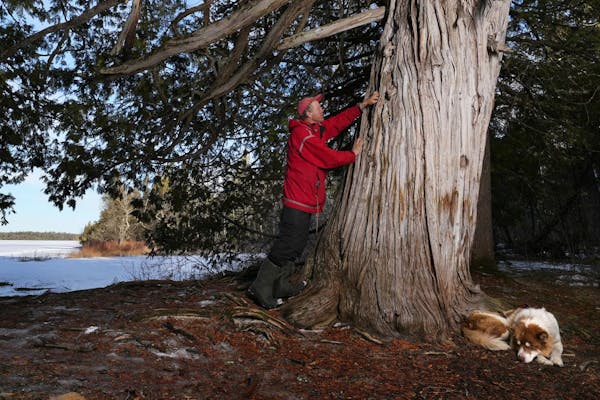Minnesota is acting to protect millions of black walnut trees from a pest that has already caused trouble in several other states.
The state Agriculture Department placed a quarantine this week on the import into Minnesota of walnut trees and certain related products from areas known to be infested with the potentially deadly thousand cankers disease (TCD).
The black walnut tree is a natural part of the southeastern Minnesota landscape, and it is highly valued for its wood. Up to 2 million board feet of black walnut is harvested in Minnesota annually for making furniture, musical instruments and other products.
"By taking this action, we will help protect a valuable part of our economy and our environment from needless damage," said Agriculture Commissioner Dave Frederickson.
"This targeted quarantine will help prevent the loss of millions of trees and avoid damage to a valuable segment of our state's forestry industry."
The University of Minnesota Extension Service characterizes the tree as one of the Midwest's most valuable based on price per board foot. Demand is high worldwide, the service adds on its website, because of "its beautiful color, strength, durability, dimensional stability after drying, and excellent machining qualities."
TCD is caused by a fungus carried by the walnut twig beetle. The beetle attacks the tree, introducing the fungus while it tunnels under the bark. This results in small cankers, or dead areas, under the bark.
As more beetles attack the tree, these cankers grow together and cut off the tree's circulation, ultimately killing the tree.
TCD has been found in Arizona, California, Colorado, Idaho, New Mexico, Oregon, Tennessee, Washington and Utah.
Walnut products covered by the quarantine include live trees, logs, lumber, firewood, nursery stock, wood chips, mulch and walnut-based packing materials.
PAUL WALSH

A reporter and her child navigate a Minnesota rite of passage: a ropes course
I-35W northbound closed in Bloomington after crash involving pedestrian

This ancient tree is one of the oldest in Minnesota. The warming climate might kill it.

